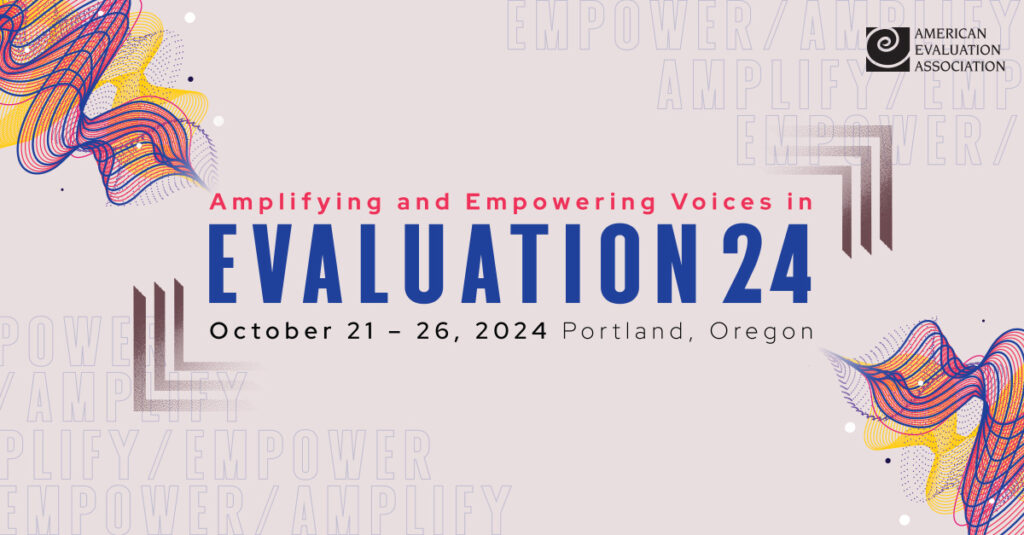D4I at the American Evaluation Association (AEA) Conference 2024
Join Data for Impact (D4I) at the American Evaluation Association (AEA) Conference 2024 happening October 21-26, 2024, in Portland, Oregon. D4I’s presence at the conference will include the presentation below. Click here for the full schedule and type “Carolina Population Center” into the TOP search bar (“Search for…” with the blue “Search” button) to find the session. (Not the “Type here to filter the list” search bar).
Poster Reception #1: 104 – Leveraging evaluation research to support learning and capacity strengthening in a low-income setting: A case study from the FUTURES evaluation in Oromia, Ethiopia
Wednesday, October 23, 2024 | 5:30 pm – 7:30 pm PST
Stream: Professional Development and Leadership
Presenters: Janine Barden-O’Fallon, Senior Research Analyst, D4I/University of North Carolina at Chapel Hill (UNC-CH)
Authors: Janine Barden-O’Fallon, Senior Research Analyst, D4I/UNC-CH, Fikadu Mitiku, Associate Professor of Agricultural and Developmental Economics, Jimma University, Ethiopia, Liz Millar, Research Analyst, D4I/UNC-CH, Adunga Eneyew, Associate Professor of Agricultural Development Economics, Jimma University, Ethiopia.
Abstract Information: This presentation centers on an evaluation of a population-health-environment project implemented in the Yayu Coffee Forest Biosphere Reserve region of Ethiopia, which has been used as a platform to engage local experts and university students in research activities. The evaluation is funded by the United States Agency for International Development through the D4I project and is implemented by researchers from UNC-CH, USA, and Jimma University, Ethiopia. The project is FUTURES: My Forest, My Livelihood, My Family and is funded by the David and Lucile Packard Foundation and implemented by CARE Ethiopia and a consortium of local implementing partner organizations. The FUTURES project has integrated components of family planning/reproductive health, improved agricultural practices, livelihood diversification, forestry management, and conservation, with a particular focus on women and youth.
The collaboration between researchers at UNC and Jimma University was initiated in 2020 to design and implement a mixed-method quasi-experimental design to evaluate the outcomes and impact of the FUTURES project. Since then, baseline data were collected in 2021 and midline data were collected in 2023. Throughout the collaboration, efforts have been made to support Ethiopia’s next generation of evaluation researchers. These efforts have included strengthening Jimma University’s capacity to engage in multisectoral population-health-environment evaluations using a “learn by doing” approach; through training to address identified skills gaps; and through empowering Jimma University collaborators to present the findings, interact with stakeholders, and equally represent the evaluation and D4I team.
Additionally, graduate students from Jimma University have been involved at every step. Students and recent graduates were hired as data collectors and involved in data analysis when appropriate (for example, contributing to analysis of qualitative data using the collaborative Dedoose platform). Two female students were selected to use quantitative data from the baseline for their Master’s Thesis papers, with UNC and Jimma University evaluators serving as Thesis Advisors. Furthermore, a recent doctoral graduate living in Addis Ababa was hired to assist with training efforts; the recognition of his skills and interest led to the expansion of his role, and he became the lead author for a recently published paper using the baseline data on gender-related factors and household food insecurity.
Resources:

